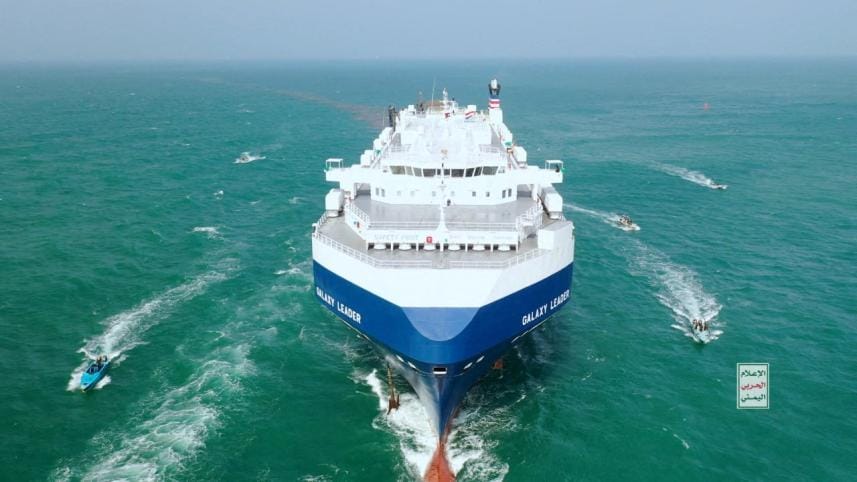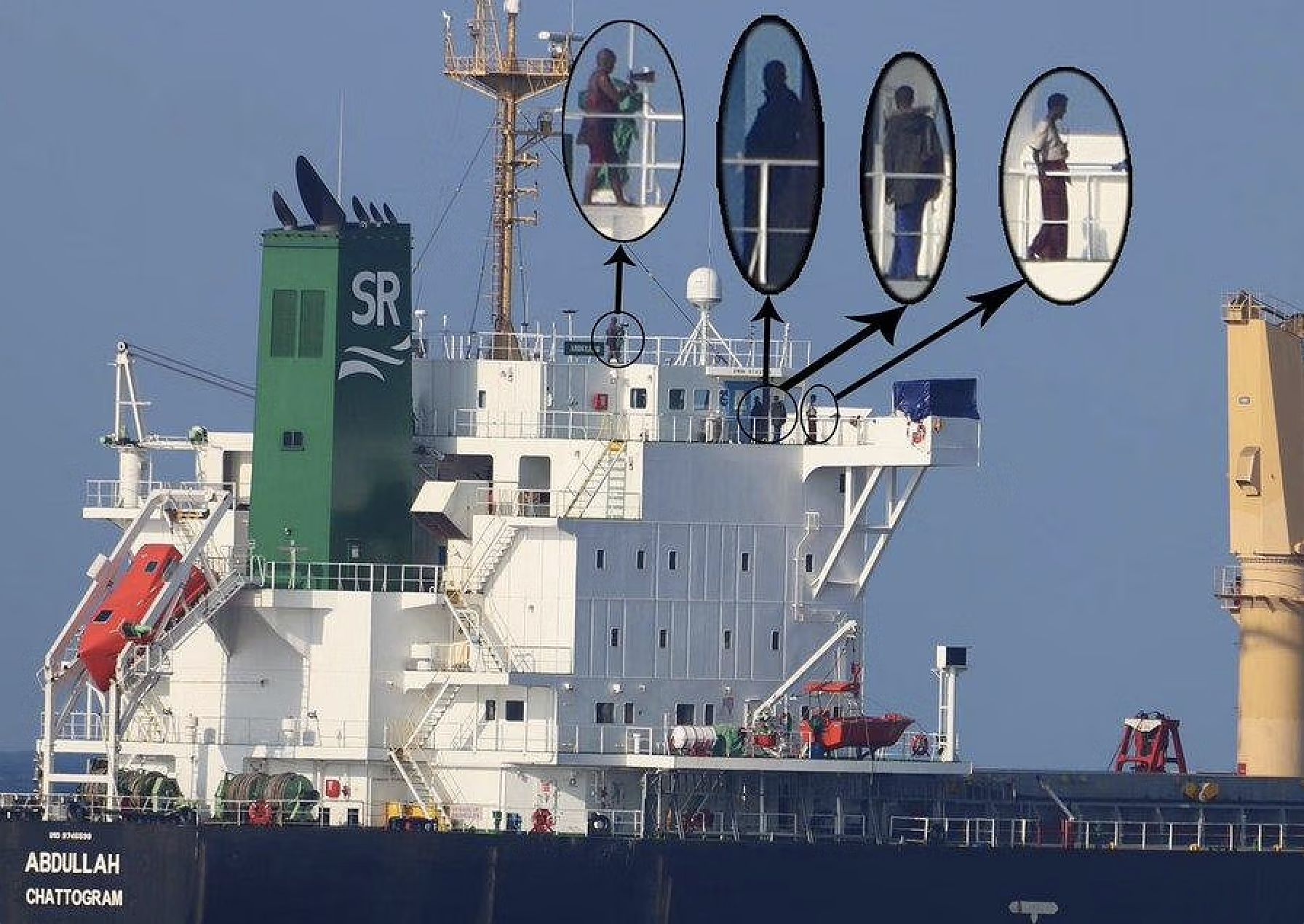The hijacking of MV Abdullah was preventable

It is 2024 and piracy is seeing a resurgence, one of its first victims being the Bangladesh-flagged bulk carrier MV Abdullah.
Pirates in the Indian Ocean were a prominent threat in the 2010s and the cause of considerable international havoc. Somalian pirate action groups were somewhat of an enterprise, with a stock-market-like financing scheme for their operations and coastal village economies dedicated to the occupation. For their part, the pirates do not consider the hijacking of vessels and payment for ransom a crime, but rather a "tax" for fishing in their waters and using their resources. There is a film on the topic, Captain Phillips, which is a good depiction of piracy at the time. Spoiler alert: Tom Hanks ingeniously escapes his captors while the US Marines arrive to extract an American—that most valued of human beings. But that is not the reality for the 23 Bangladeshi men being held by Somali pirates currently.
The world of piracy has changed; following extensive naval cooperation, pirates had all but disappeared from the Indian Ocean. The recent upsurge comes from a more evolved, highly weaponised group of men. In the early 2010s, small groups of pirates attacked ships within 200 nautical miles of their shore with makeshift weapons like knives and, at most, a gun. The pirates on board the speedboats now come with AK47s, and the motherships that transport the speedboats go deeper into the ocean than ever before, in search of ships that have grown accustomed to a relatively safe ocean.
This certainly seems to be the case for MV Abdullah. The bulk carrier was 575 nautical miles east of Mogadishu, Somalia, and cruising at a speed of 11 knots. AIS data shows that she made no attempts to speed up or zigzag to brush off her assailants, which could only mean that the crew did not spot the pirates in time or gave up too soon. And they seem to have a good reason for this. Video footage shows that the vessel was not following crucial Best Management Practices, if any. A pirate is seen, quite easily, climbing up a hook ladder and onto the ship, and there is not a single razor wire on the railings. A foghorn is commonly used to alert pirates that the ship is taking action, and a water cannon is sprayed to discourage boarding. But the only thing one can hear during this attack is the frantic voices of the crew looking on from the deck and, justifiably, panicking as they notice the pirate's gun. Best practices would have the crew nowhere near the deck at this point, but safely hiding behind a bullet-proof door at the heart of the ship, called the citadel. While the first officer recounts the majority of the crew hiding there, it begs the question of why the captain and the officer did not follow protocol.
An expert could go over this incident with a fine-toothed comb and find several other gaps in MV Abdullah's policy, but the one that should irk us most is the willing exclusion of armed guards. For obvious reasons, crew members are not allowed to carry guns on merchant vessels. And even if they are, they do not have the authority to use weapons on board. Back in the 2010s, at the height of the Somali piracy crisis, it became common to have a private armed security team or a security escort vessel tagging alongside the ship. There have been countless close calls for merchant vessels where the mere existence of a security guard and a few warning shots in the air made all the difference. Although that requirement had become lax as piracy went down (a big shout-out to naval patrols in the Indian Ocean), maritime security companies and insurers have been recommending a private armed security team on board for this strait of the water since the end of last year.
The owner likely believed the route to be relatively secure deep in the ocean, but did they bother to complete a transit risk assessment? Or were they hoping to brave the odds and let MV Abdullah pass through on pure luck? Probably the latter. It is unfortunate because the same company lost a ship to pirates 14 years ago. In 2010, the MV Jahan Moni and her 25-member crew were hijacked by pirates 170 nautical miles from Lakkha Island, India. The crew were released only after a reported $4 million ransom and 101 days in captivity. The ransom amount may even be higher, as it is often not declared to dissuade copycats. It is surprising, then, that despite the lessons in large payout and incredible duress, we sent out Abdullah as literal easy pickings in an ocean where every other ship is maintaining best management practices.
On a positive note, it should be made clear to the families of the hostages that the crew need not fear for their lives. Unless attacked, the pirates have every incentive to keep the crew alive to reap the reward. And although no US Marines are swooping in to save our Bangladeshi brothers, there has been a recent rescue story that shows that international maritime collaborations remain strong. On March 16, the Indian naval warship INS Kolkata intercepted a hijacked vessel, arresting 35 pirates and rescuing all 17 members of the crew. The bulker had been hijacked over three months ago, and the pirates had set out from Somalia, presumably to use the vessel as a mothership to hijack more ships at sea. The Indian naval warship's move to intercept the ship early shows that the international maritime community is not willing to wait for the Somali piracy threat to blow up; they would much rather nip it in the bud.
So, what can Bangladesh do concerning the 23 of our people currently stranded in Somalia? Collaboration seems to be the key, along with actionable and reliable information. I do not doubt that our navy has already reached out to the European Union Naval Force Operation ATALANTA, the International Maritime Bureau, and other maritime institutions to assess the situation and recommend the next steps forward. Organisations such as Ambrey International, a maritime security and intelligence company, can also provide pertinent information and connections, which can help ease the way forward. With the recent interception of a hijacked ship, it is highly unlikely that Somali pirates will risk taking out another merchant vessel to scour the oceans. So, MV Abdullah and her crew may have to wait until ransom negotiations close.
Though unfortunate, this incident was preventable. The oceans have never been truly safe, whether from the climate or men, but it is perhaps the most turbulent that it has been in modern history. With the Houthis sinking ships in the Red Sea, Russia and Ukraine scattering sea mines all along the Black Sea, and protestors attacking several ports, the big blue is proving to be treacherous for mariners around the world. The only difference is that Bangladesh, of all nations, cannot afford to pay the price of negligence.
Mastura Tasnim is a policy consultant working on local development, religiopolitics, and gender education.
Views expressed in this article are the author's own.
Follow The Daily Star Opinion on Facebook for the latest opinions, commentaries and analyses by experts and professionals. To contribute your article or letter to The Daily Star Opinion, see our guidelines for submission.



 For all latest news, follow The Daily Star's Google News channel.
For all latest news, follow The Daily Star's Google News channel. 

Comments